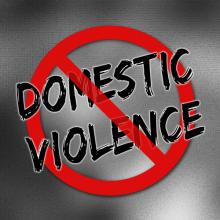Women and Girls
In her 1968 poem, “The Speed of Darkness,” the late American poet Muriel Rukeyser penned the line, “The universe is made of stories, not of atoms.”
While the medium is different, a new feature-length documentary, Girl Rising, also bares witness to the same truth in poetic images and stories of girls from around the world.
Through the vivid accounts of nine girls from the developing world — Cambodia, Nepal, Peru, Afghanistan, Egypt, Sierra Leone, Ethiopia, Haiti, and India — and their valiant struggles for the right to be educated, Girl Rising articulates a universal truth: Educating girls ensures a safer, healthier and more prosperous world for all of us.
The film, a project of the 10×10 Campaign to educate and empower girls, paired a girl in each locale with an accomplished writer — novelists, journalists, and screenwriters — from their own developing country to help craft and tell the stories in the girls’ own words.
Who is missing from the slew of headlines this week on kidnappings, gender-based violence, and victims' paths to healing? The perpetrators themselves.
Which is why this TEDx video is a must-see.
“Gender violence issues have been seen as 'women’s issues' that some good men help out with,” Jackson Katz, PhD, Founder and Director at MVP Strategies, says in the video. “I have a problem with that frame, and I don’t accept it. It gives men an excuse to not pay attention."
Elizabeth Smart, who was kidnapped from her home in Salt Lake City and held in captivity for nine months in 2002 at age 14, spoke out about her experience at a human trafficking panel at Johns Hopkins University last week. Her main focus: educating children and giving them the skills to fight back.
She recounted her own experience in abstinence education.
I remember in school one time, I had a teacher who was talking about, well about abstinence. And she said, 'Imagine that you're a stick of gum, and when you engage in sex, that's like getting chewed. And then if you do that lots of times, you're going to become an old piece of gum, and who's going to want you after that?'
… for me, I thought, 'Oh my gosh, I'm that chewed up piece of gum. Nobody re-chews a piece of gum. You throw it away.'
And that's how [easy] it is to feel like you no longer have worth; you no longer have value. Why would it even be worth scraping up? Why would it even make a difference if you are rescued? Your life no longer has value.
Watch the full speech here.
Several years ago, Amee Paparella was an eager student at a state university in Ohio. A conservative Christian, she quickly signed up to join the campus ministry. What she found in the group surprised her.
“It was so misogynistic,” Paparella recalled. “My leaders perpetuated this hyper-masculinized idea of God as physically a man.”
Over the years, Paparella wrestled to reconcile this image of God with her own faith, often to the discomfort of her peers. But an incident of sexual abuse within the ministry proved the breaking point. When it was discovered that a young man had been abusing his female partner, also in the group, the campus minister and student leaders responded by encouraging the young woman to stand by her man and to pray with the other students for his healing.
If migrants and refugees worldwide were their own country, it would be the fifth most populous in the world today. Increasingly, it is women who are leaving their homes and families to seek work to support their families economically. They are the heads of households. They are the primary "breadwinners" for their extended families. They are also more vulnerable to sexual exploitation. The United Nations Population Fund recently hosted a week-long meeting to study the more than 100 million women who are migrant workers.IPS reports:
The face of migration is changing dramatically as women and girls now represent about half of the over 214 million migrants worldwide. And in some regions of the world, they outnumber their male counterparts, says Dr. Babatunde Osotimehin, executive director of the U.N. Population Fund (UNFPA). Addressing a week-long meeting of the 46th session of the U.N. Commission on Population and Development (CPD), which concluded Friday, he pointed out that many women migrate on their own as heads of households, to secure a livelihood.“Others leave their homes in search of more open societies, to get out of a bad marriage, or to escape all forms of discrimination and gender-based violence, political conflicts, and cultural constraints.”
Read more here.
Over the last several weeks, I’ve been trying to figure out exactly why I feel so bothered by Sheryl Sandberg’s book, Lean In.
I suggested to my husband that maybe I’m being defensive since I am an educated woman in a professional field who has very clearly chosen to “lean out” to spend more time at home.
Or maybe it’s because I disagree with putting any degree of blame for inequality in the workforce on women.
Or maybe it’s because I don’t like the idea of human capital.
None of those reasons, however, seem to explain why the book and the phrase “lean in” have become such an obsession for me. I certainly consider myself a huge proponent of equality and women’s rights. I have marched, protested, researched, worked toward, and fought for true equality for women all of my adult life.
So my discomfort with Sandberg’s book isn’t because I’m anti-woman or anti-feminist. It isn’t because I disagree with her and want all moms to stay home and bake cookies and volunteer for PTA. It isn’t even because I feel the need to defend my choice to be a 99-percent stay-at-home mom. Instead, it’s because, as a Christian, I believe that the whole idea of “leaning in” does not take into account the principle of putting others before self. (Phil. 2:3-8). This principle applies equally to both women and men.
(Caveat: neither women nor men should be trapped into subservience by children and/or spouse. I am talking about putting the real, rational, and loving needs presented by being part of a family before one’s individual needs.)
One might not expect a blog post from a minister and young father in Houston, Texas to spark widespread outcry over Victoria’s Secret’s spring break-themed ad campaign. But Rev. Evan Dolive's passionate defense of his young daughter’s sense of self-worth went viral on social network sites, landed him on CNN, and wound up being used in high school classrooms in the U.S. and Canada, all in a matter of days. The point: the Victoria’s Secret “Bright Young Things” campaign — depicting young women on Spring Break toto sell underwear with explicitly suggestive messages, with the accompanying verbalized sentiment that young teens dream of being like college girls (i.e., buying from the PINK line)— was objectifying, offensive, and obnoxious.
What has made this entire experience special is receiving emails from single dads telling me they are going to use the letter as a jumping off point to have a conversation with their teenage daughters. It’s great when a father can express his feelings and concern to his daughter about the way advertisers are targeting a younger demographic. Receiving millions of hits is great, but empowering a father, giving a voice to a dad who is trying to raise children in the 21st century makes it all worth it.
Through all of this I have been shocked and humbled.
I have been amazed of the outpouring of support for people from all walks of life. Numerous people have contacted me and simply say “thank you for standing up for our children.” One thing that I have learned through this is that we all have the ability to stand up for what we believe in. The problem that many people have expressed to me that they believed no one would listen.
We all have the potential to speak out for what we believe in and for what we want to stand for. While I might be one person, I sent a message; I spoke up for my daughter and every other young girl.
The power of the voice should not be underestimated even if you believe that you might be the only one speaking. Let us ban together to use our voice as a force of change and justice.
Well, somebody had to do it: Somebody had to go buy the incessantly hyped volume Lean In by the stratospherically successful Facebook COO (and mother of two) Sheryl Sandberg, and figure out what’s behind the seemingly endless radio talk shows and online profiles — they have been following me, they have, filling up my car like clouds of incense and dinging on my phone with the book’s mantra-like subtitle, Women, Work, and the Will to Lead.
I bought this part-memoir, part self-help book on a gorgeous spring weekday when, because I work part-time, I was supposed to be home anyway. Because the pollen was getting to me and I had woken up groggy, my husband generously offered to take the children to school on his way in to work, something that Sandberg would applaud: husbands who will assume major leadership at home are a major key in enabling mothers to succeed.
I stumbled around the house in my nightgown for a while, then finally got dressed and picked up Lean In at the Target in suburban Largo, Md., which at 10 on a weekday morning, was as silent as a tomb.
I drove half an hour to have lunch with a homeschooling friend, folded laundry and cleaned some grout, picked up my children from school and finally settled down to read the book on the bench at my son’s baseball practice, as the evening sun sank over the trees.
I found myself surprised by how much I enjoyed it: Sandberg, who’s about my age and who shares some of my generational preoccupations, comes across as warm and intimate, gently self-deprecating in describing her own “monkey bar” career path (it’s not a ladder, she says, because you can move sideways too), as well as some of her mistakes.
WASHINGTON — A White House advisory council of religious leaders called for a global fund to address human trafficking and urged a new labeling system to help identify consumer goods that were not created with slave labor.
With a 36-page report released Wednesday, the President’s Advisory Council on Faith-based and Neighborhood Partnerships hopes to build awareness of the estimated 21 million people worldwide who are subjected to sexual exploitation or forced labor.
“Abraham Lincoln said if slavery is not wrong then nothing is wrong, and we know that sadly 150 years later slavery still exists,” said Susan K. Stern, chair of the council and an adviser to the American Jewish Joint Distribution Committee. “Today with this report we say, ‘Enough.’”
The 15-member council made 10 recommendations to the White House, saying what they’ve learned about the scope of trafficking has driven them to galvanize national action.
One recommendation calls for a “Global Fund to Eradicate Modern-day Slavery,” modeled on a fund that combated AIDS, tuberculosis, and malaria.
Human trafficking is one of the top-grossing industries in the world, and claims another victim nearly every 30 seconds. President Obama’s Advisory Council on Faith-based and Neighborhood Partnerships, a group of religious and non-profit leaders including Leith Anderson, Rev. Katharine Jefferts Schori, and Lynne Hybels, spent nine months mapping the scope and scale of modern-day slavery, considering possible responses, and formulating recommendations for the Administration.
“The extraordinary reach of this crime is shocking,” they write. “Our country’s leadership is urgently needed to fight this heinous crime.”
JERUSALEM — The ultra-Orthodox rabbi in charge of the sacred Western Wall assured a government emissary on Thursday that Jewish women will not be arrested if they try to recite the mourner’s prayer at the holy site, despite a warning from Israeli police.
Tensions have grown between traditional Jews and reform-minded women over prayers at the Western Wall, which contains the remains of the Temple that was destroyed nearly 2,000 years ago.
Prime Minister Benjamin Netanyahu has tapped Natan Sharansky, chairman of the Jewish Agency, with defusing the conflict and ensuring “that every Jew in the world can pray in the manner that they are accustomed to at Judaism’s most important national and religious site,” according to a statement issued by the Jewish Agency.
Jimmy Carter offered an open letter a few years ago explaining why he divorced himself from the Southern Baptist Convention after six decades as a deacon and Sunday School teacher. Basically, he contended that the SBC continued to legislate gender inequity from the top-down, cherry picking select verses to serve a desired patriarchal end, to which Carter responds:
It was, however, an unavoidable decision when the convention’s leaders, quoting a few carefully selected Bible verses and claiming that Eve was created second to Adam and was responsible for original sin, ordained that women must be “subservient” to their husbands and prohibited from serving as deacons, pastors or chaplains in the military service.
It’s easy, in the daily course of events, to forget how pervasive such judgments against the equality of women really are, especially as we have examples of powerful women in political office and business. But just as having a black President doesn’t solve racial inequities, neither do a handful of high-profile women indicate there isn’t an ongoing struggle for parity among millions of other women without such power.
ON A MILD morning in July 1997, a group of women gathered under the spreading arms of a great neem tree in the village of Malicounda Bambara in Senegal, West Africa. While children played nearby and others rested on their mothers' laps, a woman named Maimouna Traore spoke to the group.
Like most women in Malicounda Bambara, Traore had never gone to school as a child. Opportunities for education in villages like hers were scarce, especially for girls. But one year earlier, a program called Tostan (the word means "breakthrough" in the local Wolof language) had come to her village. The women enrolled in the Tostan program met three times a week, engaging in lessons on literacy and math, health and hygiene, problem-solving—and, most important of all, human rights.
Addressing her words to Molly Melching, Tostan's founder and the one American present among them, Traore said that, before the program, women in her community did not understand human rights. They did not know that, like men, they have the right to health and well-being, to speak their minds and offer their opinions. With their new understanding of these concepts came courage. They invited Melching because, after much thought and discussion, they had made an important collective decision: to end the practice of female genital cutting (FGC) in their community.
Melching was speechless. Rarely discussed openly, FGC, the complete or partial removal of female genitalia for non-medical reasons, is a long-held and deeply entrenched custom in many villages of Senegal, as well as in 27 other African nations. Known locally as "the women's tradition," it has been regarded as among the most critical moments in a girl's life, preparing her for marriage and making her a respected member of her community. To not cut one's daughter was unthinkable—setting her up for a lifetime of rejection and social isolation.
Pope Francis on Wednesday said women play a “fundamental role” in the Catholic Church as those who are mostly responsible for passing on the faith from one generation to the next.
While the new pope stopped far short of calling for women’s ordination or giving women more decision-making power in the church, his remarks nonetheless signaled an openness to women that’s not often seen in the church hierarchy.
“In the church and in the journey of faith, women have had and still have a special role in opening doors to the Lord,” the Argentine pontiff said during his weekly audience in St. Peter’s Square.
A caller into a Christian radio station was telling the hosts about some of the strains in her marriage. Soon, she was talking about the physical abuse she was receiving from her husband.
And the response of the hosts of this Christian radio show? “What are you doing that is making him so mad?”
There’s a sad history in too many Christian churches of pastors telling abused wives that their duty is, as one author noted, “to trust that God would honor her action by either stopping the abuse or giving her the strength to endure it.”
I don’t think that view is as common in churches as it once was. And in many churches pastors and other faith leaders will act thoughtfully and quickly to come to the aid of a victim of abuse. But the undercurrent of tolerating abuse lingers.
A renowned theology professor from the Southern Baptist Theological Seminary, Bruce Ware, preached a few years ago that when women refuse to submit to their husbands, men will sometimes respond with abuse. He did not condone that, but he seemed to accept it as inevitable.
Last week, a member of my youth group texted me this picture of a pregnant Kim Kardashian. It’s a recent cover from Star Magazine. She added these sarcastic words:
What? How dare she gain weight while carrying another person in her stomach!
My heart broke. We have a big problem of objectifying women in our culture. I’d just written about the Steubenville rape case and the need to finally answer the ancient question “Am I my brother and sister’s keeper?” with a definitive yes. Rape is an extreme and obvious example of the objectification and violence against women.
But what about the cover of a magazine whose central thesis is: OMG, a pregnant person gains weight?
For the sake of the world, we should all be feminists. And given what we know about the role of independent, empowered women in the community of disciples, for the sake world, we might be “Christians.”
Raymond Brown, the late, great scholar of John, writes: “In this Gospel, where light and darkness play such a role, darkness lasts until someone believes in the risen Jesus.”
Therefore no darkness, no heartbreak, no grief, no injustice can long stand where the Risen Christ is proclaimed. Jesus Christ is the light of the world. The light shines in the darknessa and the darkness does not — cannot — will not overcome the light.
It’s a constant story line involving powerful men in politics, sports, business, and even religion: they behave with utter disregard for the dignity and humanity of women, using and abusing them at will, and somehow believe that — as men — they are entitled to do so. These men seem to think that the ordinary rules of decent behavior do not apply to them. We have a never-ending avalanche of disgusting stories about men cheating on their spouses and the mothers of their children, abandoning old wives for new ones, practicing serial philandering as a way of life, sexually harassing and assaulting women, physically abusing them, and even committing rape.
And now we have the boys, high school football players from Steubenville, Ohio. As a father of two boys, one now a high school athlete, and as a Little League baseball coach, I was especially fixed on this very sad and brutal story of a 16-year-old girl being sexually assaulted by two high school football players after she had passed out from drinking too much. When the girl woke up the next morning, she was horrified to see herself naked all over social media with Tweets everywhere about her and what had happened, from the boys who assaulted her and those who watched. The boys’ lawyers pleaded that she didn’t say no; but the judge concluded that when you assault a girl who is unconscious, and can’t say no; it’s called rape.
The judge made the right decision. Rape is rape.
Few companies are as economically successful from their distortion of the sacredness of feminine sexuality as Victoria’s Secret. This lingerie company is one of the most recognized brands in America. Their advertising campaigns are on most television stations, their stores in most malls, and their Christmas fashion show is heralded by some as the beginning of the Christmas shopping season. Victoria’s Secret’s models have become the American cultural archetype for feminine beauty and sexual objectification. Their semi-divine “Angels” campaign has partially nude models in high heels and wings stare longingly look into the audience speaking “tell me that you love me,” to the unknown viewer, distorting the image of adult female sexuality and love.
While this campaign has been damaging enough to the sexual image of women, Victoria’a Secret has gone a step further. Earlier this year, Chief Financial Officer Stuart Burgdoerfer of Limited Brands, the parent company of Victoria’s Secret, announced a new marketing demographic: teenage and tween girls. Bugedoerfer stated about younger girls: “They want to be older, and they want to be cool like the girl in college, and that’s part of the magic of what we do at Pink.”
This new “Bright Young Things” line is a corporate declaration that young girls should be sexualized for profit. This line of lingerie and undergarments includes underwear prominently labeled with the phrases “Call Me,” “Wild,” and “Feeling Lucky.” This is not “magic.” This is note cute. I am not going to remain silent as Mr. Burgedoerfer, Limited Brands, and Victoria’s Secret exploit young women’s developing sexual nature for economic gain.
















